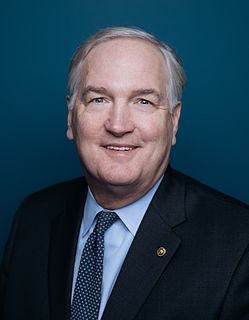A Quote by Dick Durbin
When President Donald Trump nominated Judge Neil Gorsuch to serve on the Supreme Court, I said that he deserved a fair hearing and a vote. I said this even though Senate Republicans filibustered dozens of President Obama's judicial nominees and then stopped President Obama's Supreme Court nominee, Judge Merrick Garland.
Related Quotes
With Republicans in control of the Senate for the first time since Barack Obama took office, the president may find it harder to appoint left-wing lawyers to judgeships. Whether he compromises on some of his nominees, including any to the Supreme Court, may depend on the willingness of the new Republican majority to engage the president on judicial philosophy.
Now, President Obama has to make a decision. He can either propose a nominee who can win over the majority in the Senate or defer his choice to the voters, who in November will elect a new President and a new Senate, which will be responsible for confirming a nominee who will provide balance to the Supreme Court.
Here is a needle President Obama needs to thread if he chooses a ninth. The nominee would need to be so strongly qualified that he or she would be hard to reject. The person must also be willing to be nominated even though leading Senate Republicans have said they will not consider anyone the president names.
When it comes to the Supreme Court, the American people have only two times when they have any input into how our Constitution is interpreted and who will have the privilege to do so.First, we elect a president who has the power to nominate justices to the Supreme Court.Second, the people, acting through their representatives in the Senate, have their say on whether the president's nominee should in fact be confirmed.
During the Obama years, the Republicans have done an unprecedented amount of stonewalling on cabinet-and-below appointees. I would also argue that their war on judicial nominees has been way beyond what went before. Really, if the president nominated God to serve on the D.C. Court of Appeals, Mitch McConnell would threaten a filibuster.
I don't want to get into predicting how Judge Gorsuch would vote on the Supreme Court as a Justice Gorsuch. But I will say that those of us who've seen him in court as a judge, those of us who have worked with him as I have on a appellate rules committee, understand that this is a man who brings independence and integrity to the job.
Now that Mr. Trump is the President-elect: If he chooses, he can, by executive order, repeal most of what President Barack Obama brought into existence, including the thawing of the relationship between the United States and the people of Cuba. And because there is a Republican Senate, a Republican House of Representatives, a Republican president, it is more than likely that his legislative program will be accepted; his nominations to the Supreme Court may very well be accepted.































